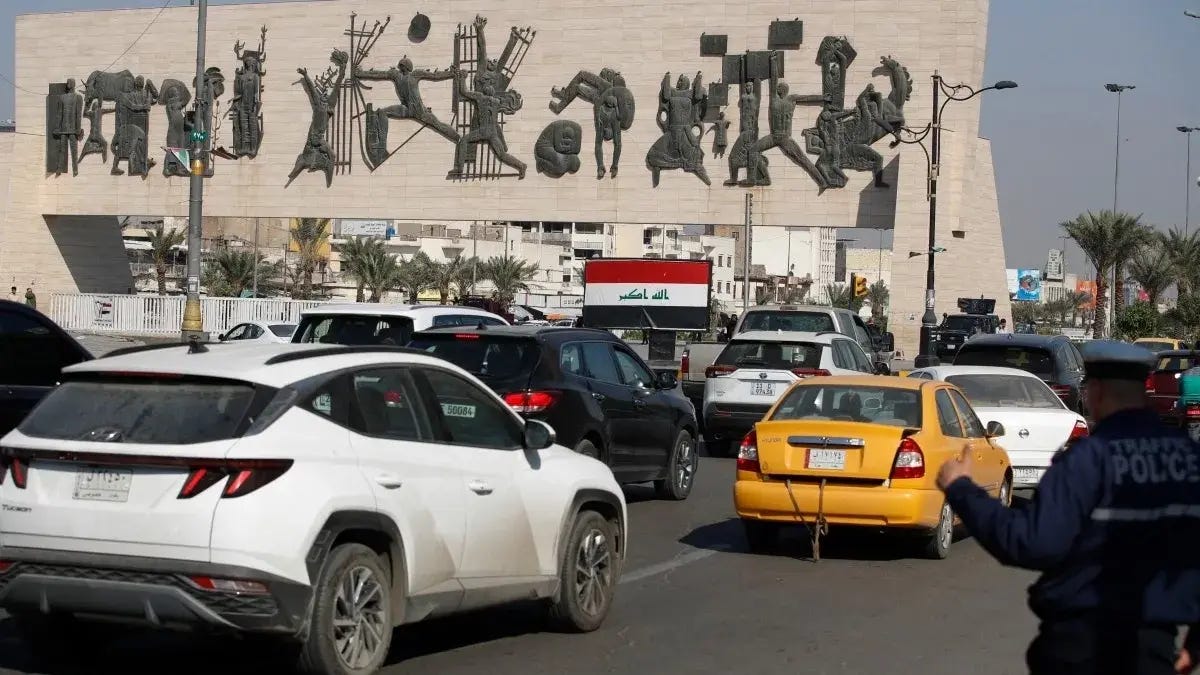As U.S. pressure mounts to block the passage of the Popular Mobilization Forces (PMF) law currently under discussion in Iraq’s parliament, Prime Minister Mohammed Shia al-Sudani has spoken publicly of government efforts to consolidate control over all weapons under state authority.
In response, armed factions—particularly those aligned with Iran and seen as the primary targets of American pressure—have adopted a more defiant stance.
These groups are acutely aware that Washington’s current strategy seeks to eliminate non-state actors across the Middle East.
The recent security incident in the Dora district, south of Baghdad, highlights the complex challenges of dealing with well-armed factions. The confrontation, sparked by an administrative dispute over replacing the local agricultural director—who is reportedly close to Kataib Hezbollah—quickly escalated.
Armed clashes erupted between members of the group and Iraqi federal police tasked with securing the district, leaving several dead and wounded.
Critically, the attacking force technically falls under the command of the Iraqi Armed Forces’ commander-in-chief. Yet it confronted another state entity, underlining the deeply entrenched complications of dealing with such groups and their weapons.
The Coordination Framework and Crisis Management
In the immediate aftermath of the Dora events, Iraq’s Coordination Framework bloc held an emergency meeting at the home of Ammar al-Hakim, head of the Hikma Movement. The coalition condemned Kataib Hezbollah’s actions and expressed support for the government’s response, which included the arrest of a significant portion of the attacking force.
The statement emphasized the need to prevent future incidents that could jeopardize the Iraqi government's standing—especially amid growing U.S. calls for disarming militias or incorporating them into the country’s formal security apparatus.
The Framework’s position reveals genuine fears of the country slipping into chaos as inter-factional competition intensifies. These armed groups are vying for greater territorial and resource control amid tightening economic constraints. Agricultural zones like Dora offer lucrative opportunities for control through administrative front operations, enabling these groups to extend their influence.
Despite close ties between leaders of the Coordination Framework and militia heads, a disconnect has emerged over political strategy—particularly concerning the proposed PMF law. Many within the Framework fear passing the legislation could both inflame U.S. opposition and place them under the future sway of the militias themselves.
The proposed bill would significantly bolster the political and security standing of these factions, raising alarms among political elites about the risk of replicating Lebanon’s Hezbollah: a powerful, armed political actor capable of dominating both the political and security spheres. These concerns are amplified by the growing political ambitions of faction leaders seeking to monopolize Shiite political representation and sideline rival figures.
A Rift with the Shrine-Linked PMF Units
In a recent interview, Sheikh Maytham al-Zaidi—commander of the Abbas Combat Division and affiliated with the Shrine-linked PMF units under the Najaf religious authority—highlighted growing divisions between Iran-aligned factions and shrine-loyalist forces. He argued that the current crisis revolves around the PMF’s identity and role, rather than the proposed legislation itself. According to al-Zaidi, Washington’s issue lies not in the existence of the PMF, but in its deep-rooted ties with Iran.
Regarding the Dora incident, al-Zaidi voiced support for the government’s actions, stating that state authority must prevail and that official institutions should not be used to pursue illegal or factional agendas.
Following the Dora clash, the U.S. Embassy in Baghdad released a statement that underscored its concern. The embassy framed the event as a serious challenge to Iraqi sovereignty, particularly as it involved a group the U.S. designates as a terrorist organization. The statement also alluded to the group’s close relationship with Tehran.
This U.S. response reflects more than just a reaction to one event. It forms part of a broader and sustained campaign to pressure the Sudani government on the issue of militias. Recent developments underscore this trajectory from halting salary payments to PMF personnel, to a phone call between U.S. Secretary of State Marco Rubio and Prime Minister Sudani, and repeated U.S. warnings urging factions to cease attacks on the Kurdistan Region. Collectively, these actions point to Washington’s growing desire to reshape the role of armed groups in Iraq.
Militias Stand Their Ground
Despite mounting challenges, armed factions show no sign of relinquishing their weapons. This defiance has been openly expressed by leaders of groups such as Asaib Ahl al-Haq and Kataib Hezbollah, who have vowed never to disarm under any circumstances.
These factions understand that their influence and survival are inseparable from their weaponry. Maintaining their political and economic clout depends on keeping their arms—and rejecting domestic or foreign efforts to dismantle or integrate them into state institutions.
For its part, Iran is equally unwilling to let these groups disarm. Tehran sees the militias as vital to maintaining regional leverage, especially given the setbacks suffered by its allies in Beirut and Damascus. Preserving influence in Iraq is therefore a strategic priority. The recent visit by Quds Force commander Ismail Qaani to Baghdad earlier this month serves as a clear indication of that commitment.
It is evident that these militias have adapted to the pressure, in part by building their own economic and military infrastructures, intricately linked with the Iraqi state. Their integration into state institutions is so complex that neither the Iraqi government nor the U.S. can easily dismantle them.
Despite American warnings, the factions remain confident in their ability to withstand external pressure—because of, rather than in spite of, the blurred line between state and non-state power in Iraq.


